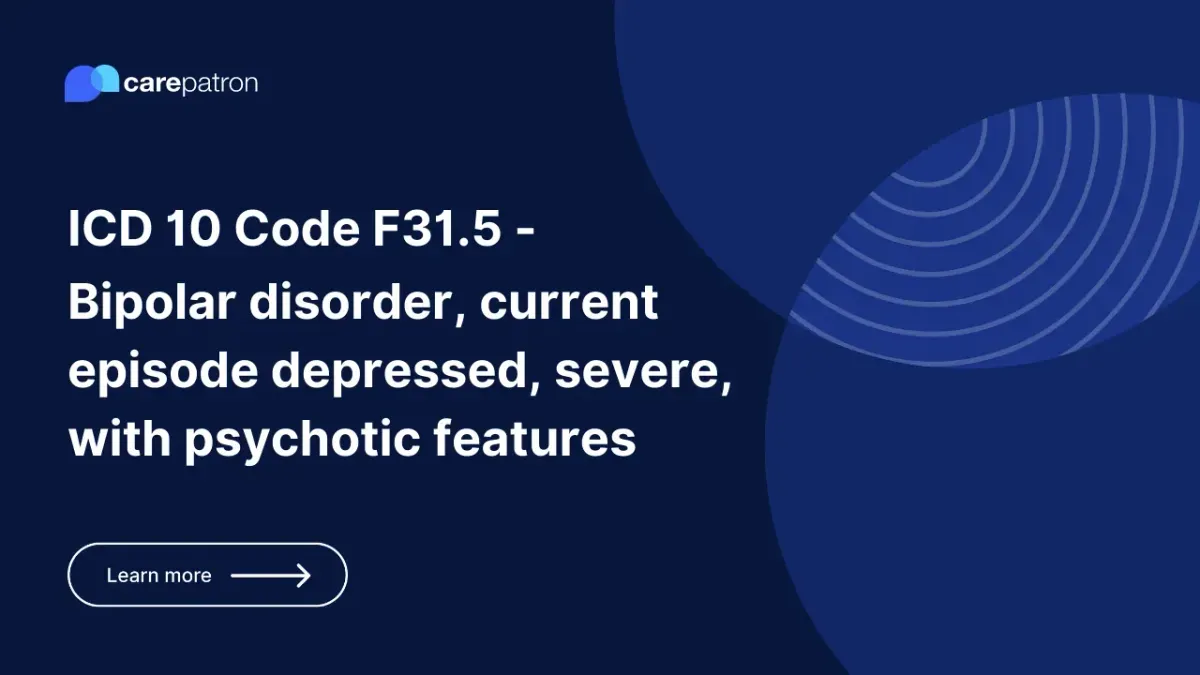
F31.5 – Bipolar disorder, current episode depressed, severe, with psychotic features
F31.5 is an ICD-10 code for Bipolar disorder, current episode depressed, severe, with psychotic features. Discover how to use this code in this guide.
Use Code
EHR and practice management software
Get started for free
*No credit card required
Free
$0/usd
Unlimited clients
Telehealth
1GB of storage
Client portal text
Automated billing and online payments
